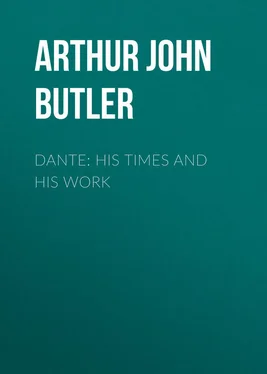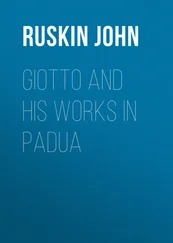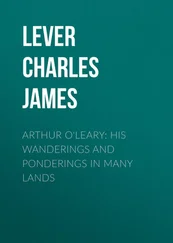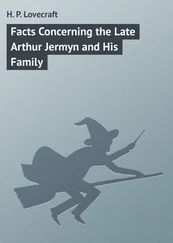Arthur Butler - Dante - His Times and His Work
Здесь есть возможность читать онлайн «Arthur Butler - Dante - His Times and His Work» — ознакомительный отрывок электронной книги совершенно бесплатно, а после прочтения отрывка купить полную версию. В некоторых случаях можно слушать аудио, скачать через торрент в формате fb2 и присутствует краткое содержание. Жанр: foreign_antique, foreign_prose, на английском языке. Описание произведения, (предисловие) а так же отзывы посетителей доступны на портале библиотеки ЛибКат.
- Название:Dante: His Times and His Work
- Автор:
- Жанр:
- Год:неизвестен
- ISBN:нет данных
- Рейтинг книги:3 / 5. Голосов: 1
-
Избранное:Добавить в избранное
- Отзывы:
-
Ваша оценка:
- 60
- 1
- 2
- 3
- 4
- 5
Dante: His Times and His Work: краткое содержание, описание и аннотация
Предлагаем к чтению аннотацию, описание, краткое содержание или предисловие (зависит от того, что написал сам автор книги «Dante: His Times and His Work»). Если вы не нашли необходимую информацию о книге — напишите в комментариях, мы постараемся отыскать её.
Dante: His Times and His Work — читать онлайн ознакомительный отрывок
Ниже представлен текст книги, разбитый по страницам. Система сохранения места последней прочитанной страницы, позволяет с удобством читать онлайн бесплатно книгу «Dante: His Times and His Work», без необходимости каждый раз заново искать на чём Вы остановились. Поставьте закладку, и сможете в любой момент перейти на страницу, на которой закончили чтение.
Интервал:
Закладка:
Sixty-five of the leading Guelf families fled to Lucca, while the Ghibelines entered Florence, and appointed Guido Novello, of the great house of the Conti Guidi, Imperial Podestà. A meeting of the leaders of the party from Pisa, Siena, and Arezzo was held at Empoli, and a proposal was made on behalf of the rival cities, to raze Florence to the ground as a fortified city, and so preclude her revival as a Guelf stronghold. For once, however, a man was found to set patriotism above party. The great Farinata degli Uberti, whose wise counsel and warlike skill had mainly contributed to the victory, rose, with the same magnificent scorn, we may suppose, that Dante afterwards saw him display for the torments of Hell, 19and let it be known that, so long as he had life in him, he would resist any such measure at the sword’s point. Count Giordano, the commander of the Germans, who had convened the meeting, gave in, and Florence was saved.
This was the last gleam of success which the Imperial cause was to enjoy in Tuscany for nearly half a century. Soon after the battle of Montaperti, Urban IV. was elected to the Papal See. He was a Frenchman by birth, “son of a shoemaker, but a valiant man and wise,” says Villani. In view of the growing power of Manfred, vigorous steps had to be taken. The exiled Florentine Guelfs had made a fruitless attempt to effect a diversion in Germany, by inciting the young Conradin to oppose the acting head of his house. This old expedient having failed, Urban turned his eyes towards his own country. Charles of Anjou, brother of Saint Lewis, was at that time, next to the reigning sovereigns, the most powerful prince in Christendom, and to his aid the Pope appealed. Himself a man of Puritanical strictness in his life, and devoted to the Church, Charles was ready enough to accept the call, which appealed alike to his principles and to his ambition, and to act as the champion of the Holy See against the dissolute and freethinking Manfred; and the influence of his wife, the only one of Raymond Berenger’s four daughters who was not actually or in prospect a queen, 20was thrown on the same side. After keeping Easter 1265 at Paris, Charles set out, and landed at the mouth of the Tiber in May. In December he was crowned at Rome King of Naples, Sicily, and Apulia. Two months later, at the end of February 1266, Charles and Manfred met near Benevento. After some hard fighting, of which the German troops seem to have borne the brunt, the battle was decided against Manfred by the desertion of his Apulian barons, and he himself was slain. His defeat gave the final blow to the Ghibeline cause in Tuscany. Only Pisa and Siena remained faithful. In Florence an attempt was made to avoid civil strife by the device of doubling the office of Podestà. Two gentlemen from Bologna, Catalano de’ Malavolti and Loderingo de’ Landolò, a Guelf and a Ghibeline, 21were appointed, and they nominated a council of thirty-six, chosen from both sides. But this plan did not work well. Party spirit had grown too violent to allow of half measures, and before the year was out the people rose again, and the Ghibelines were banished for good and all.
CHAPTER III.
DANTE’S EARLY DAYS
In the month when Charles of Anjou sailed up the Tiber to Rome, a child was born at Florence to a citizen named Alighiero, son of Bellincione. We do not know for certain his casato , or family name. Bellincione’s father was another Alighiero, or, as it was originally written, Aldighiero. His father was Cacciaguida, who had a brother named Eliseo; from which it has been conjectured that he may have belonged to the prominent house of the Elisei, which is known to have existed as far back as the beginning of the eleventh century, since it was not uncommon for members of a family to bear the founder’s name. We know, further, that the name of Alighiero came into the family with Cacciaguida’s wife, who belonged to some city near the Po, probably Ferrara, where a family of Aldighieri is known to have existed. 22In any case, it was originally no Florentine name, and it may be doubted if it ever was recognised as the appellation of a family. True, Dante is once or twice referred to as “Dantes de Alegheriis,” but this may be due to the fact that he was known to have had recently two ancestors of the name. He himself, if we may trust the evidence of letters ascribed to him, seems to have written “Dantes Alligherius,” while his son calls him Dantes Aligherii, and himself Petrus Dantis Aligherii, “Peter, son of Dante, son of Alighiero.” In the official Florentine documents, where his name occurs, it is “Dantes Allegherii” or “Dante d’Alighiero,” “Dante the son of Alighiero,” and no more. The form “degli Alighieri,” which would indicate a true family name, we find in no undoubtedly contemporary document.
In view of this initial uncertainty, the discussion whether the poet was of “noble” family or not seems a trifle superfluous. His great-great-grand-father, Cacciaguida, is made to say ( Par. , xv. 140) that he himself received knighthood from the Emperor Conrad III. (of Hohenstaufen). This would confer nobility; but it would appear that it would be possible for later generations to lose that status, and there are some indications that Dante was sensitive on this point. At any rate, it is pretty clear that his immediate ancestors were not in any way distinguished. The very fact that he was born in Florence during a period when all the leading Guelfs were in exile shows that Alighiero was not considered by the dominant Ghibelines a person of too great importance to be allowed to remain undisturbed in the city.
Of Dante’s boyhood and early youth we have only stray indications, and those mainly gathered from his own writings. We can, indeed, form a pretty clear notion of what he was , but we know little enough about what he did . From a very early period he was made a hero of romance. Without going so far as some recent writers, both German and Italian, who seem to look upon every statement of early biographers with suspicion, while regarding their silence as good evidence that what they do not mention cannot have happened, we must admit that we cannot with certainty date any event in the first thirty years of Dante’s life. Still, we can infer a good deal. He must unquestionably, during this time, have read a great deal, for it would have been impossible for a man wandering about from place to place, and intermittently busied in political affairs, to have amassed in seven or eight years the amount of learning which the Commedia by itself shows him to have possessed. He must have been recognised at an early age as a young man of marked ability. His intimacy with the old statesman Brunetto Latini, who died in 1294, and his friendship with Charles of Anjou’s grandson, Carlo Martello, 23the young King of Hungary, who was at Florence in the same year and the following, are sufficient to prove this. Neither Brunetto, the most learned man of his age in Florence, and, as we should say, a man of “society” as well, nor a prince who, had he lived, would have been one of the most important personages in Europe, was likely to have distinguished with his friendship a young man of twenty-nine, not of the highest birth, unless he had already made himself notable for intellectual eminence.
One event occurred during Dante’s youth, in which he is so generally believed to have borne a part, that it will probably come as a shock to many people to learn that this belief rests only on the statement of a writer who was not born till nearly fifty years after Dante’s death. On St. Barnabas’s day, June 11, 1289, the Florentine Guelfs met the Ghibelines of Arezzo, in whose ranks many of their own exiles were fighting, in a plain called Campaldino, belonging to the district of Certomondo, which lies in the Casentino, or upper part of the Arno valley. The Florentines gained a complete victory, though only after a hard fight, in which many of the chief Ghibeline leaders lost their lives. The event was one of great importance, and Villani recounts it in very full detail. 24Dante also refers to it in one of the best-known passages of the Purgatory (v. 92). It is quite possible that he himself may have taken part in the battle; but if he did so, it is somewhat strange that none of the earlier commentators, including his own son, nor any biographer of the fourteenth century, should have known of it, or, knowing of it, should have thought it worth recording; and that it should have been left to Leonardo Bruni of Arezzo, writing after the year 1400, to make the first reference to so noteworthy an incident in Dante’s early career. Leonardo (whose “Life” will be found in Bianchi’s edition of the Commedia ) quotes, indeed, a letter, said to have been written many years afterwards by Dante, in which reference is made to his presence in the battle; but this letter has long disappeared, and it is to be noted that the biographer does not even profess to have seen it himself. There is, it must be said, in the Hell (xxii. init. ) one allusion to warlike operations in the Aretine territory of which Dante claims to have been an eye-witness; but as none of the early commentators seems to refer to Campaldino in connection with this passage, it tells, if anything, against the received story.
Читать дальшеИнтервал:
Закладка:
Похожие книги на «Dante: His Times and His Work»
Представляем Вашему вниманию похожие книги на «Dante: His Times and His Work» списком для выбора. Мы отобрали схожую по названию и смыслу литературу в надежде предоставить читателям больше вариантов отыскать новые, интересные, ещё непрочитанные произведения.
Обсуждение, отзывы о книге «Dante: His Times and His Work» и просто собственные мнения читателей. Оставьте ваши комментарии, напишите, что Вы думаете о произведении, его смысле или главных героях. Укажите что конкретно понравилось, а что нет, и почему Вы так считаете.




![William Frith - John Leech, His Life and Work. Vol. 1 [of 2]](/books/747171/william-frith-john-leech-his-life-and-work-vol-thumb.webp)
![William Frith - John Leech, His Life and Work, Vol. 2 [of 2]](/books/748201/william-frith-john-leech-his-life-and-work-vol-thumb.webp)





